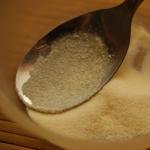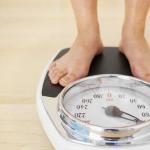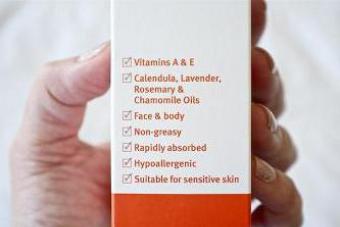Brand: Soap nuts
A country:
Soap nuts are a hypoallergenic and natural cleanser. These are the fruits of a deciduous tree known by the botanical name Sapindus, which translates as “soap tree”. They can easily replace washing powders, soap, and almost any detergent in your home.
Application soap nuts varied: this includes washing clothes, washing dishes, and washing. They have miracle fruits and medicinal properties. Due to its natural origin and processing without using chemicals and industrial technologies they are one hundred percent natural, natural product, safe for health.
Saponin produced by the soap tree and found in large quantities in the shell soap nut, has the ability to cleanse dirt and absorb unpleasant odors; Scientists have identified its antifungal and antibacterial properties. The laundry becomes soft after washing, so fabric softener is not required when washing. And at the same time, saponin does not create an alkaline reaction, is non-toxic and is a biodegradable substance, that is does not harm the human body or the environment, does not cause skin irritation or allergies.
Soap nuts are also used in washing machines, and for hand wash. This product is suitable for any type of fabric, can be used for washing baby clothes, is effective even when used in cold water. Washing with soap nuts is economical: one kilogram is approximately 200 washes; Each serving of nuts can be used multiple times (up to five times). Most often, a cotton bag is used for washing, into which about 15 g of dry nuts (5-6 pieces) or shells are placed (for best results, it is advisable to chop them). If the water is hard, fruit consumption approximately doubles. The tied bag is placed in the washing machine along with the laundry. If your clothes are heavily soiled, you should reduce the machine load or increase the amount of nuts. Nuts can be used repeatedly - for two or three washes.
For hand washing, use a decoction or infusion. To prepare the decoction, boil 3 to 4 handfuls of nuts in a liter of water for 4 minutes. Leave for 15 minutes, remove the nuts, and use one or two tablespoons of the broth per wash. You can soak 4 to 5 nuts placed in a bag in a cup of boiling water for 3 minutes and use the resulting infusion for washing. You should not expect a bleaching effect from soap nuts, so if dazzling whiteness of your laundry is important to you, you will have to use oxygen bleach or use old “grandmother’s” methods - repeated soaking, boiling. Additional products will also be needed to remove greasy or any old stains. The main advantage of soap nuts is that they help achieve cleanliness without compromising your health.
There are other household chores where soap nuts are used. So, a decoction of this remedy suitable for washing dishes. One to two tablespoons is enough for the dishwasher. If you wash dishes by hand, apply the decoction to the sponge in the same way as regular detergent. Baths with soap nut decoction are pleasant and beneficial for the skin; it can be used as shampoo, used when cleaning an apartment, cleaning upholstered furniture and carpets, as well as jewelry. This amazing gift of nature can replace many chemical washing and cleaning products in your home, the use of which is far from safe for our health and the health of our loved ones, especially children, who so often suffer various types allergies, including to washing powders.
There are several options for replacing washing powder for an automatic machine if you are allergic to chemicals. It is important to remember that the negative effect of the powder is cumulative, and the impact on health does not become noticeable immediately. Fortunately, there are many inexpensive natural remedies which can be used for washing.
Any powder contains two main components - phosphates and surfactants. Salts of phosphoric acids, which in chemistry are called phosphates, have a strong impact on the environment. With used water, they flow down pipes and end up in city water bodies, polluting them.
Surfactants, in turn, cause harm to the human body. The consequences of regular use of the powder can be very different:
- decreased immunity;
- skin irritation, allergies;
- damage to nerve cells;
- negative effect on the kidneys, lungs, liver.
Diseases come gradually, since surfactants accumulate in the human body for a long time, and only after years can they cause serious harm. Even with good rinsing, surfactants remain in the fibers, especially in woolen fabrics.
Alternative products for your washing machine
To avoid harming yourself and the environment, you should use safe means for washing, which includes laundry soap, soda, mustard powder and other substances.
Borax, soda and soap shavings
Regular baking soda is a universal remedy that can also be used when washing things. It not only whitens fabric well, but also eliminates unpleasant odors However, this product is not suitable for washing colored items. Borax can be used for washing both children's and adult clothes. This substance has several “pharmacy” names: sodium boric salt and sodium tetraborate.
By mixing baking soda, borax and soap shavings from any uncolored soap, you can get a homemade washing powder that will perfectly remove stains and will not harm the skin and body.
Laundry soap
Previously, laundry soap was in every home, and grandmothers and mothers washed things by hand. However, today you can remove the shavings from laundry soap and, by mixing them with other ingredients, make homemade powder of excellent quality.
You can mix laundry soap with the following substances:
- regular soda;
- soda ash;
- essential oil.
The grated soap is poured into the powder compartment without using any additional additives.
Soda Ash
Homemade soda ash powder recipe:
- you will need laundry soap 150 g, soda – 400 g, any essential oil – 2-3 drops, a grater for preparing soap and a jar where the finished mixture will be stored;
- the soap is rubbed, the shavings are covered with soda and mixed with essential oil;
- Before using the powder, you need to lightly shake the jar and use a measuring spoon to remove the required amount of product.

Despite the fact that this powder is natural, it still needs to be stored out of the reach of children, in a well-closed container.
Recipe based on mustard powder
To wash things in a machine you will need 50 g of dry mustard powder. However, in order not to regret such a non-standard decision and get clean, fresh linen, you need to take into account several rules:
- Mustard is poured directly into the drum when putting things in.
- You need to put the wash on temperature regime 30 degrees. With more high temperatures The mustard is brewed and gives things a yellowish tint.
- For silk and woolen items, it is recommended to use mustard infusion.
Salt
Also, when preparing the powder yourself, you can use ordinary salt, mixing it with grated soap, soda and a few drops of essential oil.
Soap root
The natural substance saponin, which is popularly called soap root, can be purchased at a homeopathic pharmacy or on the market. For one kilogram of clothing you will need a small piece of root about 50 g. The root is crushed, poured with boiling water and left for 24 hours, after which the solution is filtered through cheesecloth and used for washing. When washing, items must be rinsed thoroughly, first in hot, then in cold water.

If a white woolen sweater is being washed, add 2 teaspoons when rinsing ammonia, thanks to which the fabric retains its shape.
horse chestnut
An alternative means for washing clothes is horse chestnut.
This is an eco-product and a universal product that removes stains well and gives things freshness.
Rules of use:
- the peel must be removed, as it “gives” things an unpleasant tint;
- the white kernel of the nut is ground in a coffee grinder;
- Powder is poured before washing hot water, and the resulting foam is transferred by hand into the machine.
To achieve a better whitening effect, items are pre-soaked in this water for an hour.
Beans
For washing, it is not the beans themselves that are used, but their decoction in which things are soaked. This method is great for wool items. First, 200 g of beans are boiled in a liter of water, after which the liquid must be cooled. The warm infusion is filtered through cheesecloth and whisked until foam appears. It is used when washing things in a machine.
Ash
Plant ash can also be used when washing clothes. When preparing the powder, it is important to ensure that particles of chemical ash, which severely damage clothes, do not get into the mixture. Before washing, the items are turned inside out and placed in the drum of the washing machine, and 200 g of ash is poured into the powder compartment. So that there won't be any left dark spots, it is recommended to rinse things additionally in a basin, or set the “extra rinse” mode.
Soap nuts

For washing to go well, you need to follow several rules:
- linen must be sorted into colored, white and black;
- heavily soiled items are pre-soaked;
- The nuts are placed in a special bag and in a drum, along with things.
To be achieved maximum effect, it is recommended not to load the drum to capacity, leaving free space. This method is great for removing stains left from chocolate, Coca-Cola, ballpoint pen and sunflower oil.
How to bleach fabric without chlorine
There are five ways you can bleach fabric without using chlorine:
- half a glass of ordinary vinegar is poured into the air conditioner compartment;
- baking soda is added instead of powder separately, or with soap root and flavored oil;
- hydrogen peroxide can be added to washing powder, or applied to things during the soaking process;
- Lemon juice is suitable for whitening even difficult stains. It is used for soaking, diluting with water.
A non-standard way to bleach delicate light-colored items is to soak them in milk.
The use of gels as powder substitutes
Today, manufacturers offer an alternative to powders, and you can wash clothes using special gels. However, the question arises as to how harmful or useful such means are for things and for humans.

A standard gel is a surfactant solution. However, unlike powders, surfactants in gels are replaced with cationic ones instead of anionic ones, and cause less harm to the human body. Items washed using gels acquire freshness, but do not lose their shape.
In order not to make irreparable mistakes, you should listen to the advice of experienced housewives and take advantage of the experience of others:
- finely grated soap is poured into the tray of the machine, but if the homemade powder turns out to be too large, it is recommended to put it together with things, directly into the drum, to avoid sticking;
- if things were placed in the machine different colors, and they have faded, you should immediately lay out the dyed sweaters and trousers and leave the white, dyed underwear, starting a new wash;
- lemon – excellent remedy To whiten yellow spots in the armpits and on the fold of the collar, just squeeze out a few drops and mix with soda.
Eco-friendly laundry detergents are just gaining popularity, but the main question a housewife asks before using it for the first time is whether the item can be washed? When using the correct recipe and proportions, all stains will disappear, and the fabric itself will become fresh.
Often, when drying dark underwear, you can notice small white granules on it - these are powder residues that negatively affect human skin and the body as a whole. Sometimes even repeated rinses do not give the desired result, so the best option- This is the replacement of chemicals with natural ones.
With the development of the chemical industry, household chemicals have become better able to cope with the assigned tasks. With its help you can remove any dirt. But at the same time, the compositions became more aggressive and harmful to health. To protect themselves and their families, housewives are beginning to think about how to replace washing powder. Let's tell you more about different alternatives to traditional detergents.
The harm of traditional household chemicals lies in the use of aggressive components of the composition. Let's tell you more about them.
Surfactants that serve to clean fabrics lead to a number of negative consequences:
- In high concentrations they cause allergies and skin irritations.
- Reduce the rate of redox reactions in the body.
- Accumulate on the surface of cell membranes.
- They disrupt fat and protein metabolic processes.
Anionic surfactants pose a particular danger. They accumulate in the body, leading to malfunctions of the liver and respiratory system.
The next most dangerous substance is phosphates. They enhance the effect of surfactants, thereby increasing their aggressive influence. In this case, phosphate-containing particles do not decompose in wastewater. This means that they harm not only humans, but also the environment.
The last of the most dangerous components are optical brighteners. They inevitably leave their particles on the tissues, which penetrate the body through the surface of the skin, causing dermatitis and irritation.
There are natural washing powders that do not contain the listed components. But today they are unreasonably expensive. Not everyone can afford them.
Natural substitutes for household chemicals
Enterprising housewives found a solution to the problem and adapted old, time-tested home remedies for use in automatic machines.
Soda Ash
Capable of removing even the most complex stains. At the same time, it is not very gentle on fibers. Therefore, she should only wash coarse cotton and linen fabrics.
An alkaline environment has a negative effect on the sealing elements of household appliances. Using baking soda regularly is not recommended.
Salt
Suitable for cleaning linen and calico fibers. It copes with common daily pollution. For difficult stains, it is better to use more powerful formulations. The main advantage of salt is its careful handling of dyes. They retain brightness and color saturation.
horse chestnut
Suitable for use in washing machine and for hand washing. The nuts are dried, peeled and ground into powder. As you use it, it foams and removes stains.
What should not be used instead of washing powder
An important feature of automatic machines is the intense mechanical impact. Because of this, when using many components, abundant foam is formed. If there is an excessive amount, it begins to come out through the tray for household chemicals, the hatch seal, and sometimes seeps through the connecting hoses. At best, this leads to the need to clean the room. The worst thing is that the foam gets on the contacts of electronic systems, shorts them out and leads to breakdown of the machine.
In traditional means, to get rid of this effect, special components are used - defoamers. If you use natural recipes, it is better to avoid ingredients that give a lot of foam:
- Bar or liquid soap.
- Soap shavings.
- Vinegar or other acids and alkalis.
- Mustard powder.
Similar products can be used for hand washing, soaking and drying. But before putting it in the machine, things need to be rinsed thoroughly.
It is prohibited to add plants, root vegetables and other raw materials crushed into pieces to the compositions. They can get stuck in valves or clog thin sections of pipelines, resulting in the need for equipment repairs.
Gels as substitutes for washing powder
Natural homemade solutions, although safe, rarely boast high efficiency. Wherein a large number of washing cycles, which are necessary to remove dirt, damage fabric fibers and render things unusable.
Make clothes cleaning safer, save money and get good result liquid ones will help cleaning compositions. Their formulation does not use phosphates. The concentration of anionic surfactants is kept to a minimum, and safe titanium dioxide is used instead of aggressive bleaches.
If you refuse household chemicals due to individual intolerance to their components, gel products will help you avoid negative manifestations.
Universal capsules instead of washing powders
This substitute is more effective than others in removing even the most complex and long-standing contaminants. At the same time, it is possible to choose formulations with a minimum content of aggressive substances.
The capsule is a jelly shell with several compartments for washing liquids. It dissolves in the drum different cycles washing, releasing exactly those substances that are needed in this moment. The capsule contains:
- washing gel;
- conditioner-rinse aid;
- color activator;
- stain remover
All components have a gel-like consistency. This indicates their low aggressiveness. Unlike the separate use of gels, here the substances are carefully selected for collaboration. They complement and enhance each other's action.
If you are looking for a replacement for washing powder due to its aggressiveness, you do not have to return to outdated methods. A good, safe and effective alternative can also be found in the modern range of household chemicals.
Today we often hear about the dangers of washing powders, which are dangerous to human health and the environment. These products are being replaced by concentrated phosphate-free powders with natural ingredients and liquid washing gels with a mild, gentle effect.
However, such products are quite expensive. Therefore, many people ask whether there are accessible and inexpensive analogues of bulk detergent that can be used in machine washing. Let's look at how to replace washing powder.
Why is washing powder harmful?
Surfactants (surfactants), phosphates and zeolites, fragrances and enzymes, flavors and dyes, defoamers and other aggressive additives - this is what washing powder for a washing machine is made from. Many of these elements are harmful and dangerous. Zeolites and phosphates in washing powder often lead to skin irritation and allergic reactions.
Many washing powders generate dust and form powdered lime, and after washing they leave marks and stains. This causes discomfort, worsens the condition of things and also leads to allergies. See how an allergy to washing powder manifests itself.
With regular washing with bulk substances, clothes gradually wear out, lose quality, color and presentability. appearance. This is especially true for delicate fabrics, including lace and satin, silk and wool. In addition, powders are harmful to ecology and the environment, since the composition does not disintegrate or break down.

To reduce the harm of bulk detergent, many are switching to environmentally friendly phosphate-free powders. This is a safe product that does not cause allergies and does not harm the environment, as it completely dissolves and breaks down into organic substances.
It is suitable for everyday washing and works even in cold water, but is expensive. But you can replace washing powder with more affordable ones folk remedies.
Folk remedies
The solution will remove stubborn stains baking soda and Boers. To do this, take 200 grams of each substance and mix. The mixture should be stored in a dry container with a tight-fitting lid. When washing, use 30 grams of the resulting product per two kilograms of laundry.
Pour the powder into a regular glass and pour in hot water until the end. Mix the composition and add to the powder compartment. Wash at 40-60 degrees. In colder or hot water the components will not have the desired effect.

A recipe using a more expanded list of ingredients will be more effective when washing. Take 200 grams of baking soda, table salt, borax and 100 ml of wine vinegar. Wine vinegar will act as a conditioner. It will soften the water, give things softness and a fresh aroma. Leave the vinegar separately and mix the remaining ingredients.
Use the resulting product at the rate of 40 grams of powder and two teaspoons of vinegar per two kilograms of laundry. The mixture is placed in the main compartment, and the vinegar in the conditioner compartment. It is advisable to wash things in warm water.
Experts do not recommend using homemade powders all the time, as they will not cope with washing 100% and will not be able to remove difficult stains. In addition, folk remedies are not suitable for fading fabrics and are ineffective for colored items. But you can alternate between store-bought and homemade laundry detergents in the washing machine. This will save money and preserve the quality of things longer.
What not to use
Many recipes using soap are not machine washable. The soap forms a lot of foam, in addition, the remaining product settles in the tank, drain, filter and drain of the machine. As a result, this disrupts the operation of the washing drum, clogs the holes and disables the equipment.

For the same reasons, the following components and solutions cannot be placed in the automatic machine:
- Soap, solid and liquid, soap shavings;
- Vinegar, acids, alkali;
- Mustard powder;
- Plants in crushed form with large fractions.
Even with timely cleaning of the washing machine, the risk of equipment breakdown when using the above components remains very high. But such products are well suited for hand washing. Use acids and alkalis with caution. They will remove old dirt and stubborn stains, but are not suitable for washing children's clothes.
Liquid washing gels
Washing powders can be replaced with liquid gels. By the way, such products are specially made for safe washing in an automatic machine. The gel is a liquid-like composition without phosphates and with a minimal amount of surfactants.

The gels are distinguished by a convenient dosage, since the product is measured using a cap from the packaging. In addition, the product is convenient to store in a compact container that does not take up much space.
The gel also differs in that it contains titanium dioxide and similar substances that help maintain the whiteness and freshness of products. Such elements are not washed out after washing and protect the fibers of the materials, preventing further contamination.
Liquid detergents act delicately on fabrics, are completely washed out and leave no traces, and retain the shape and original appearance of products. They are optimal for young children, people with allergic diseases and weak immunity.
Please note that gels cannot be used for hand washing because the substances in the product require special activation, which is only possible in an automatic machine.

In addition, it is recommended to dilute gels with warm water at a temperature no higher than 40 degrees, since in hot water the elements from the composition are destroyed and stop working. When washed in water temperatures above 60 degrees, the gels will not be able to remove stubborn stains from grass and cosmetics, food and drinks.
Benefits of washing gels
- Accurate and convenient dosage;
- Convenient storage;
- Eco-friendly and natural composition without phosphates and aggressive components;
- Provide gentle and silk items;
- There are no harmful emissions, which ensures 100% safety for the environment;
- Safe for allergy sufferers and children;
- They dissolve and wash out well, do not leave light spots, marks or streaks;
- Gently clean the fabric and do not destroy the structure of things, protect color and shape.
How to make washing gel
You can also prepare liquid gel yourself. Take two liters of water, 100 grams of baking soda and laundry soap. Grate the soap on a coarse grater and add water. Then place on the stove and melt over low heat until the soap is completely dissolved. After this, add soda to the solution and mix well.

It is important that the soda dissolves completely, otherwise it may leave streaks, marks and light spots on dark or black clothes. The resulting composition is left covered for a day, then poured into a container and used if necessary. Baking soda reduces the volume of soap suds, so this gel can sometimes be used in automatic machines. But this product is more suitable for hand washing.
Six best washing gels
- Persil Gel is the most popular and affordable product in this category. It protects color and removes stubborn stains and works at low temperatures. The gel can replace washing powder in terms of washing quality and efficiency. At the same time, it contains a safer composition. But this product is characterized by fast consumption and high price;
- Wellery has received a lot of positive reviews, despite high cost. This product prevents color fading and preserves the aesthetic appearance of products for a long time. In addition, this gel is gentle on fabric and is suitable for washing silk, wool and other delicate materials. Wellery is characterized by a light fresh aroma, safe composition and thick texture, practical packaging and economical consumption;
- Synergetic is a universal hypoallergenic product from Germany that is perfect for washing baby clothes, delicate fabrics and other types of material. The light consistency of the gel foams well and is washed out of the fibers in a few seconds. However, Synergetic is quickly consumed and will not be able to remove old stains;
- Ariel - economical and accessible remedy, suitable for colored and white linen, children's clothing and for allergy sufferers. The gel is distinguished by its versatility and high efficiency. It easily dissolves in water and is washed out, effectively removing stains and dirt;
- Power Wash is another versatile product that works on every type of fabric, including lye, satin and wool. It effectively removes stains and protects color. Can be used for colored and white clothes;
- Eared nanny - a popular Russian brand detergents for newborns and children. Can be used for babies from the first days of life, including for washing baby vests and diapers. In addition, this gel is suitable for disinfecting children's dishes, bottles, and toys. It kills harmful germs and bacteria. However, many mothers note the appearance of an allergic reaction in their babies.

Liquid gels are suitable for everyday and frequent use, for washing children's clothes and delicate fabrics, as they are gentle and gentle. In addition, this is an indispensable product for allergy sufferers and people prone to allergies and skin irritation. But strong and difficult to remove stains, as well as linen and cotton, can only be washed with washing powders.
In the latter case, it is important to choose a safe composition that will cause less harm. You need to be especially careful when choosing washing powders for children's clothing. These must be special products appropriately marked “for children” or “for newborns.”
Natural concentrated powders without phosphates are perfect for safe washing. More detailed information How to choose washing powder can be found at the link.
Is it possible to replace expensive washing powder with something for an automatic washing machine? This question interests many housewives with little income, because due to the current economic situation, machine powder is becoming more and more expensive every year. There is a seemingly obvious solution: replace store-bought powder with homemade powder by preparing such a powder with your own hands. However, it is not clear how this homemade powder will wash, how it will affect the washing machine, and whether its components will be expensive? Let's resolve these issues together.
Components not for automatic washing machines
On the Internet you can immediately find dozens of recipes for various homemade laundry detergents, which are supposedly safe for the washing machine and remove stains better than any expensive powder. We categorically do not recommend taking the word of such “advisers”, but using logic and drawing appropriate conclusions. Let's give an example.
 Many people recommend it. On the Internet, on dozens of sites you can find recipes for such a powder, and hundreds of housewives recommend this powder for washing in the washing machine. In fact, this powder is only good for washing by hand or in a semi-automatic washing machine; it cannot be washed in a machine, since it is half soap. Why is soap bad for an automatic washing machine?
Many people recommend it. On the Internet, on dozens of sites you can find recipes for such a powder, and hundreds of housewives recommend this powder for washing in the washing machine. In fact, this powder is only good for washing by hand or in a semi-automatic washing machine; it cannot be washed in a machine, since it is half soap. Why is soap bad for an automatic washing machine?
The soap solution settles in the tank, drain pipe, hose and drain filter of the washing machine, over time partially blocking the holes through which waste water passes, and even worse, the soap solution disables the pump, blocking the pump impeller. As a result, the washing machine breaks down and without thorough cleaning, it will not be possible to start it. What components should you not use to prepare homemade washing powder for an automatic machine?
- Soap, soap shavings, etc.
- Mustard powder of any consistency.
- Concentrated aggressive chemicals (acetic essence, acids, caustic alkali).
- Crushed and crushed plants with more or less large fractions.
Even if you clean your washing machine regularly, but, on the contrary, use homemade powders containing the above components irregularly, the risk of breaking your washing machine is very high.
Simple recipe
 If you are dealing with stubborn dirt, you can try making laundry detergent for washing lightly soiled clothes in an automatic washing machine. You need to take 200 g of borax and 200 g of baking soda, mix these powders and pour into a dry, hermetically sealed container. As soon as the time comes to wash, using a measuring container you will need to collect about 30 g of powder per 2 kg of laundry, pour this powder into a glass, then fill the glass to the brim with hot water and stir the contents with a spoon.
If you are dealing with stubborn dirt, you can try making laundry detergent for washing lightly soiled clothes in an automatic washing machine. You need to take 200 g of borax and 200 g of baking soda, mix these powders and pour into a dry, hermetically sealed container. As soon as the time comes to wash, using a measuring container you will need to collect about 30 g of powder per 2 kg of laundry, pour this powder into a glass, then fill the glass to the brim with hot water and stir the contents with a spoon.
After this, the simplest washing solution can be poured into the powder cuvette and run your favorite washing program. When using this powder, it is better not to wash things in cold water, but there is no need for boiling water! The optimal temperature regime is 40-60 0 C.
Multi-ingredient recipe
The following recipe for homemade powder seems to be a little more effective, but certainly absolutely safe for things and the washing machine. It cannot be considered a complete replacement for store-bought powder, but in some cases it copes with its task very well. We take the following ingredients:
- 200 g baking soda;
- 200 g borax;
- 200 g table salt;
- 100 ml wine vinegar.
Wine vinegar will do the job of fabric softener, leaving clothes soft and smelling fresh.
 All of the above components can be mixed except wine vinegar. We pour the vinegar into a separate container and place it next to the jar into which we previously poured a mixture of baking soda, borax and table salt. This is how we will use the product.
All of the above components can be mixed except wine vinegar. We pour the vinegar into a separate container and place it next to the jar into which we previously poured a mixture of baking soda, borax and table salt. This is how we will use the product.
- Using a measuring container, measure 40 g of powder and 2 teaspoons of vinegar for every 2 kg of laundry.
- Pour the powder into the main wash compartment.
- Pour vinegar into the rinse aid compartment.
- We put not too dirty colored items into the drum and start the wash.
Is it possible to wash snow-white items or highly faded colored items with this powder? Practice shows that this is not necessary. We carried out the appropriate tests and in one wash out of three, we ruined white thing. The quality of washing colored items with homemade powder also does not reach the level of factory powder, but sometimes it is still quite possible to wash with this product. It is “to wash it sometimes”, and not to replace the usual powder with a homemade one.
How to make home remedies more effective?
Experienced housewives, not without reason, claim that if you wash correctly, you won’t need any expensive washing powders. Their advice is very simple, but at the same time, many have forgotten about them, having become accustomed to the convenience that automatic washing machines create. 
- Before putting things into the washing machine drum, soak them in a bowl of water for 10-15 minutes. First dissolve a little homemade powder in water. During this short time, the powder will pick up contaminants. Then you can wring out the items, put them in the washing machine and start the washing program.
- Before washing, you can categorize your clothes not only by fabric type and color, but also by type of dirt. For example, soak things stained with blood in cold water, and treat things with red wine stains with ammonia mixed with hydrogen peroxide. After this, the stains can be easily washed off even with the use of homemade powder.
- Before washing, evaluate the nature of the contamination of a particular item. If the item is very dirty, put it aside and wash it, then separately with expensive powder.
Do not overuse homemade powders; they are still not suitable for use in a washing machine, even if they do not contain substances that are clearly harmful to the machine’s communications.
In conclusion, we note that no home remedy can completely replace regular washing machine powder. However, by alternating regular powder with homemade powder, you can save a lot of money by washing in an automatic washing machine. All that remains is to prepare such a powder yourself. Good luck!





